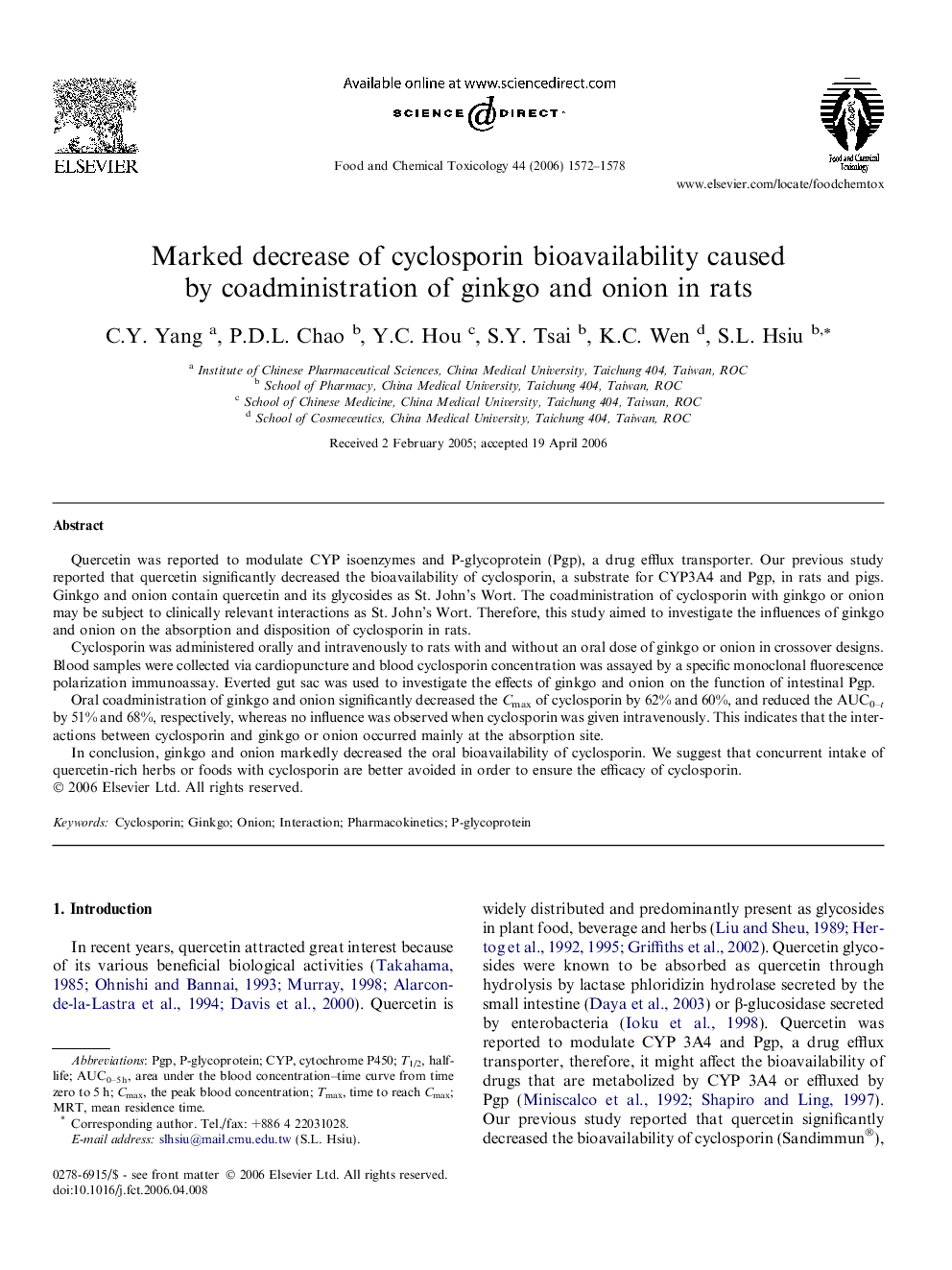| Article ID | Journal | Published Year | Pages | File Type |
|---|---|---|---|---|
| 2588333 | Food and Chemical Toxicology | 2006 | 7 Pages |
Quercetin was reported to modulate CYP isoenzymes and P-glycoprotein (Pgp), a drug efflux transporter. Our previous study reported that quercetin significantly decreased the bioavailability of cyclosporin, a substrate for CYP3A4 and Pgp, in rats and pigs. Ginkgo and onion contain quercetin and its glycosides as St. John’s Wort. The coadministration of cyclosporin with ginkgo or onion may be subject to clinically relevant interactions as St. John’s Wort. Therefore, this study aimed to investigate the influences of ginkgo and onion on the absorption and disposition of cyclosporin in rats.Cyclosporin was administered orally and intravenously to rats with and without an oral dose of ginkgo or onion in crossover designs. Blood samples were collected via cardiopuncture and blood cyclosporin concentration was assayed by a specific monoclonal fluorescence polarization immunoassay. Everted gut sac was used to investigate the effects of ginkgo and onion on the function of intestinal Pgp.Oral coadministration of ginkgo and onion significantly decreased the Cmax of cyclosporin by 62% and 60%, and reduced the AUC0–t by 51% and 68%, respectively, whereas no influence was observed when cyclosporin was given intravenously. This indicates that the interactions between cyclosporin and ginkgo or onion occurred mainly at the absorption site.In conclusion, ginkgo and onion markedly decreased the oral bioavailability of cyclosporin. We suggest that concurrent intake of quercetin-rich herbs or foods with cyclosporin are better avoided in order to ensure the efficacy of cyclosporin.
